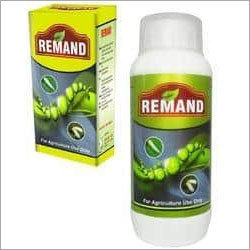- Home Page
- Company Profile
-
Our Products
- Flowering Stimulant
- Auxin Growth Promoter
- Sodium Salt of Nitrophenolate
- Amino Acid 50 %
- Indole Butyric Acid
- DA-6 (Diethylaminoethyl Hexanoate)
- Auxin Plant Growth Promoter
- Indole 3 Acetic Acid
- Ascorbic Acid
- Humic Amino Shiny Balls
- Nitrophenolate Powder
- Amino Acid
- Amino Acid 85 %
- Nitrobenzene Powder
- Herbal Bio Pesticide
- Bactericide .
- N-Acetyl Thiazolidine Carboxylic Acid
- Silicon Based Spreader And Activator
- Preservatives for Zyme Liquid
- Bronopol .
- Nitrobenzene Technical
- Nitro Benzene
- Plant Growth Regulator
- Bio Stimulant
- Rentac Flowering Stimulant
- ReGold Plant Growth Regulator
- RETURN Flowering Stimulant
- Rumicin Plant Growth Regulator
- Plant Growth Regulator
- Rowdy Plant Growth Promoter
- Agricultural Plant Growth Promoters
- Reshot Super Plant Growth Regulator
- Natural Plant Growth Regulator
- Sodium Nitrophenolate
- Retry Plant Growth Promoter
- Refund Plant Growth Stimulant
- Humic Acid Flacks 95% WSG
- Red Flower Plant Growth Regulator
- NATCA .
- Red Hume Plus Powder Plant Growth Regulator
- Plant Growth Regulators
- Sodium Ortho Nitrophenolate
- Atonic Plant Growth Regulator
- Bio Pesticides
- Bio Fungicides
- Organic Fertilizers
- Organic Pesticides
- Potassium Humate
- Seaweed Extract Flake
- Virus Controller
- Insecticides Formulation
- Bio Larvicide
- Plant Growth Promoter
- Soil Conditioners
- Viricide Agro Chemicals
- Insecticide
- Spread and Activator
- Bio Fertilizer
- Absorbent Polymer
- PGR
- Nitrophenolate
- Plant Growth Stimulant
- Humic Acid
- Seaweed Extract Solution
- Agricultural Pesticides
- Organic Soil Conditioners
- Agro Product
- Preservative for Humic
- Plant Nutrient
- Emulsifier
- Indole Acetic Acids
- Brassinolide
- 6-Benzylaminopurine
- Isopropyl Alcohol
- Award And Achievement
- Inquiry
- Contact Us

Agricultural Pesticides
Product Details:
- Classification Biological Pesticide
- Release Type Controlled
- Purity(%) 98% 99% 100%
- Application Agriculture, Pest Control
- Type Insecticide
- Click to view more
X
Agricultural Pesticides Price And Quantity
- 10 Bottle
Agricultural Pesticides Product Specifications
- Agriculture, Pest Control
- Biological Pesticide
- Insecticide
- Controlled
- 98% 99% 100%
Agricultural Pesticides Trade Information
- 1000 Bottle Per Month
- 4-5 Days
Product Description
To cater the various requirements of our esteemed clients, we are providing a wide array of Agricultural Pesticides. Offered pesticides are made to control various harmful agents such as insects, weeds, fungi and other potentially harmful pests that threaten agricultural production. In order to process afore mentioned pesticides in tandem with international quality standards, our adroit chemical engineers use quality-approved basic ingredients and advanced formulation techniques. Further, clients can bought these pesticides in various hygienic packaging options within budgeted prices.
Agricultural Pesticide Features:
1. Accurate composition
2. Longer shelf life
3. High effectiveness
4. Optimum solubility
Agricultural Pesticide FAQ:
Q: Why are pesticides used in agriculture?
A: Pesticides are used in agriculture to protect crops from pests and diseases, which can reduce yields and quality. They help farmers manage pests efficiently, ensuring a reliable food supply and reducing economic losses.
Q: Are pesticides harmful to the environment?
A: Some pesticides can be harmful to the environment if not used properly. They can contaminate soil, water, and air, affecting non-target organisms like beneficial insects, birds, and aquatic life. However, many modern pesticides are designed to degrade quickly and have lower toxicity to non-target organisms.
Q: How are pesticides regulated?
A: Pesticides are regulated by government agencies, such as the Environmental Protection Agency (EPA) in the United States. Regulatory agencies assess the safety and effectiveness of pesticides before they can be sold and used. They set limits on pesticide residues in food and establish guidelines for proper application to minimize risks to human health and the environment.
Q: Can pesticide residues remain on food?
A: Yes, pesticide residues can remain on food after application. However, regulatory agencies set maximum residue limits (MRLs) to ensure that pesticide residues on food are at safe levels for human consumption. Washing, peeling, and cooking food can also reduce pesticide residues.
Q: Are there alternatives to chemical pesticides?
A: Yes, there are alternative pest control methods, including biological control (using natural predators or parasites to control pests), cultural practices (rotating crops, planting resistant varieties), and mechanical methods (hand-weeding, mulching). Integrated Pest Management (IPM) combines multiple pest control strategies to minimize pesticide use while maintaining effective pest control.
Q: Can pesticides harm human health?
A: Pesticides can potentially harm human health if not used according to label instructions. Short-term exposure to high levels of pesticides can cause acute poisoning, while long-term exposure to low levels may increase the risk of chronic health effects such as cancer, reproductive problems, and neurological disorders. Proper handling, application, and protective measures can reduce these risks.
Q: How can consumers reduce pesticide exposure?
A: Consumers can reduce pesticide exposure by washing fruits and vegetables thoroughly, peeling when appropriate, and choosing organic produce, which is grown without synthetic pesticides. Additionally, buying locally grown produce can reduce exposure to pesticides used in long-distance transportation and storage.
Q: Are pesticides harmful to bees and other pollinators?
A: Some pesticides can be harmful to bees and other pollinators if not used properly. Certain insecticides, such as neonicotinoids, have been associated with bee declines and other negative effects on pollinators. To protect pollinators, it's essential to use pesticides judiciously and follow label instructions regarding application timing and methods.
Tell us about your requirement

Price:
Quantity
Select Unit
- 50
- 100
- 200
- 250
- 500
- 1000+
Additional detail
Mobile number
Email
"We are accepting orders in bulk only by Resellers."





